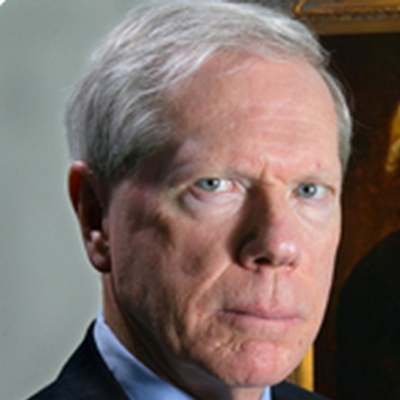by Paul Craig Roberts, Paul Craig Roberts:

The Digital Revolution Equals Communism
Finally, equality has arrived.
https://www.youtube.com/watch?v=obWllC_GpR0
Artificial intelligence greatly empowers scammers and malevolent uses of the Internet. Malwarebytes provides updates on the latest threats. Here are a couple:
Fake CAPTCHA websites hijack your clipboard to install information stealers
TRUTH LIVES on at https://sgtreport.tv/
etter_paid_v4_1_174250044006&utm_content=wolf_in_sheep_clothing
The digital revolution and artificial intelligence are not only the greatest possible threat to our privacy and financial security, but also to our values, because the digital revolution makes possible Communism, our likely future. Humans, like the Borg in Star Trek, will no longer be individuals capable of thought. They will be part of a collective with a collective mind imposed by official narratives, with all unofficial narratives censored as misinformation.
Already in American universities and public schools students are being taught that compliance with official narratives is rewarded and that intelligence is the ability to remember and repeat. Even this is being bypassed, because students no longer know a subject or how to use language to write a theme. AI does it for them, so of what does modern education consist? It consists of knowing how to use AI to solve math and physics problems and write your history and English papers. You don’t need to know math, physics, history, or how to use the language. Never learning these skills, education produces uneducated citizens.
These are precisely the people who will be made useless by AI. AI has a massive advantage over researchers and memory and repeat. Doctors, lawyers, engineers, architects will be needed only in small numbers to type into the computers the medical symptoms, legal precedents, architectural parameters for the building, and the parameters of the engineering problem. AI’s ability to recognize patterns and to rapidly search data bases eliminates most purposes of the upper professional classes.
The process of technology separating students from learning skills perhaps began with handheld calculators, which resulted in children ceasing to learn the multiplication tables. With the advent of computer keyboards, students ceased to learn to write cursive.
As AI replaces human skills, it also destroys human jobs. What people, especially free market libertarian economists, have not understood is that unlike earlier technological advances, AI eliminates the need of humans to do jobs. AI is a step beyond offshoring. Offshoring eliminated Americans jobs by giving the jobs to China, other parts of Asia and Mexico. But still humans did the jobs. Human performance was not eliminated, just a change in location of performance.
In earlier times when technology destroyed household jobs (as in the “putting out system,” see Appendix at the end) and relocated them in factories, the technological advance did not eliminate the need for humans to do the jobs. The factory system just collected the jobs under one roof.
AI is a totally different form of technology. It eliminates the need for people. So what does humanity do? The absence of purpose is why Bill Gates and the World Economic Forum want to reduce the world population.
In an earlier article, I said that a colleague and I would present a case that AI would liberate mankind by taking over undesirable and dreary jobs. My colleague sincerely believes this, but I do not.
I think that AI disconnects people from one another and from themselves. I regard it as not merely inconvenience but as the epitome of evil.
Nevertheless, I will try to keep my commitment to present a possible positive portrait of the digital revolution. This is the first task in my life in which I have no confidence. If readers would like to contribute to forming a positive portrait of AI, I am pleased to hear from them. There are positive aspects. For example, people can work from home and participate in face-to-face meetings and conferences without travel. But even the positive aspects have costs. Working from home is isolating, as is the absence of travel which reduces experiences. Is life in a virtual world really life?
Appendix:
The putting-out system
Certain industries that were small at the outset of the Middle Ages grew to be quite large in scale, and this growth influenced changes in the organization of work. The most important of these was the wool-cloth industry.
For reasons of cost and availability, wool was the basic clothing material in western Europe until the beginning of modern times (19th century US cotton plantations in the South altered the composition of clothing). Linen and silk were too costly for any large-scale use, and cotton was grown only in small volumes. The production of cloth from wool involved several time-consuming steps: cleaning and carding (straightening curled and knotted fibers sheared from the sheep), spinning the fibers into thread, weaving the thread into cloth, shearing off knots and roughness, and dyeing. All these processes could be carried on within a single peasant household, for they required only simple apparatus and rudimentary skills. Typically, children carded the wool, women operated the spinning wheel, and men worked the loom shuttles.
Read More @ PaulCraigRoberts.org



 They’re SPRAYING Us Like Insects—And Now They’re Targeting Our Kids
They’re SPRAYING Us Like Insects—And Now They’re Targeting Our Kids